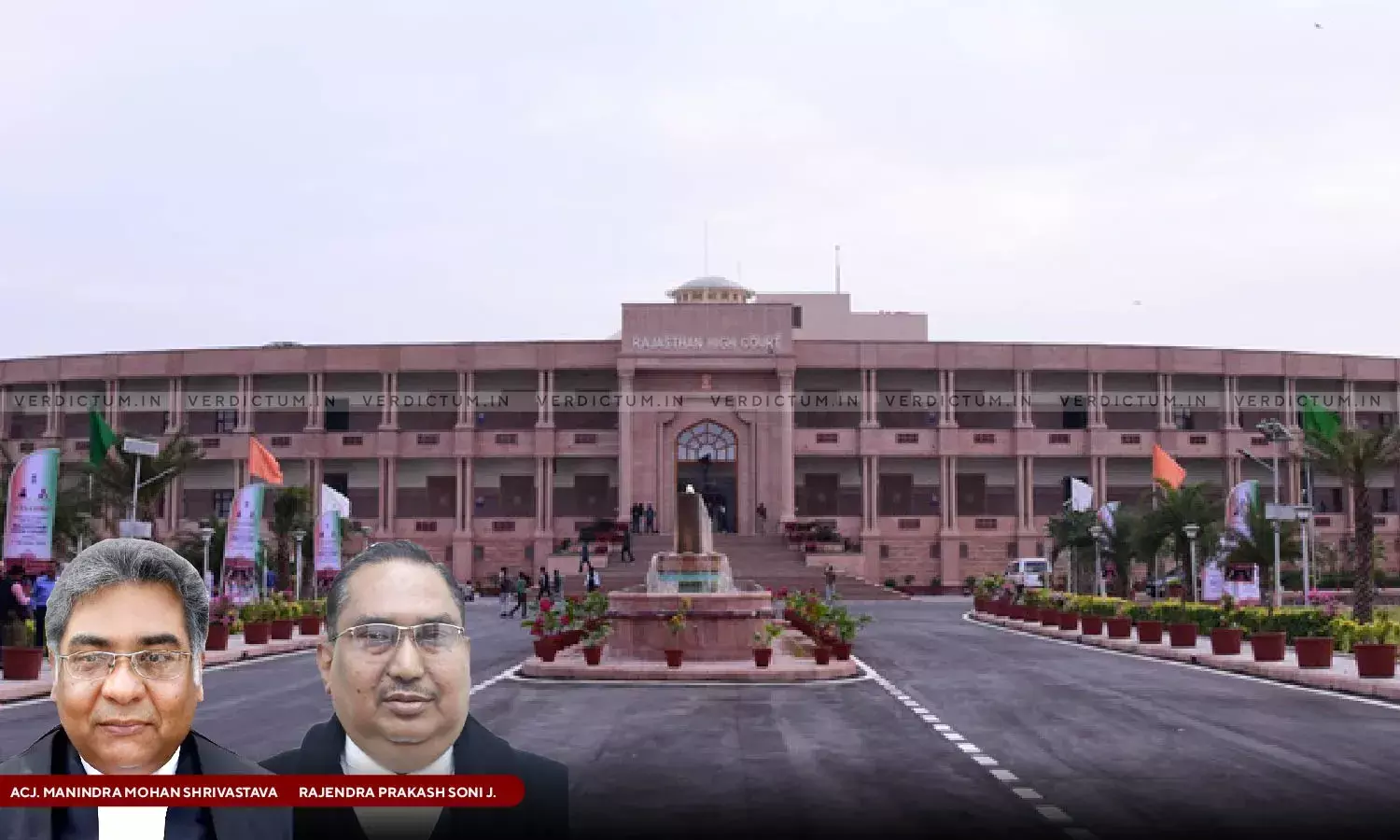'Law & Order Situation May Be Adversely Affected': Rajasthan High Court Dismisses Parole Plea Of Asharam

The Rajasthan High Court dismissed the parole plea filed by Asharam, seeking temporary release from prison.
The Court noted that parole is a discretionary privilege, not a vested right, and the authorities should exercise their discretion following the relevant rules and regulations.
The Court noted that he was ineligible under Rule 1(3) of the Rajasthan Prisoners Release on Parole Rules, 2021 (Rules, 2021) due to being convicted in another state.
The Bench headed by Acting Chief Justice Manindra Mohan Shrivastava and comprising Justice Rajendra Prakash Soni observed, “irrespective of whether such provisions is unconstitutional or not, the law as it stands today, bars consideration of an application of a prisoner, who is undergoing jail sentence in a jail of Rajasthan, having convicted by a Court of other State. Thus, there is clear prohibition under the law. Therefore, the prayer to read down Rule 1(3) of the new Parole Rules of 2021… cannot be accepted”.
Senior Advocate Vikas Balia appeared for the Petitioner and Additional Advocate General Anil Joshi appeared for the Respondent.
The Petitioner was convicted under various sections of the Indian Penal Code, 1860 Juvenile Justice Act, 2015, and the Protection of Children from Sexual Offences Act 2012. The Petitioner challenged the order, denying his application for a 20-day parole by the District Parole Advisory Committee (DPAC) in Jodhpur. Having already been sentenced to life imprisonment in two cases, the petitioner previously applied for parole, which was rejected under the Rajasthan Prisoners Release on Parole Rules, 2021 (Rules, 2021). The Court set aside the decision, directing reconsideration under the Rajasthan Prisoners Release on Parole Rules, 1958 (Rules, 1958). However, in the subsequent meeting, the DPAC once again rejected the petitioner's parole application, leading to the filing of this petition under Article 226.
The Court observed that the sentences were mandated to run concurrently under Section 427(2) of the CrPC Seeking a 20-day parole, the petitioner's application was rejected by the DPAC on, citing the New Parole Rules of 2021. The DPAC insisted on serving half the jail sentence before parole eligibility, referencing Rules 16(1)(C) & 17(D) of the new rules. Additionally, Rule 1(3) rendered the petitioner ineligible due to convictions in other states.
The Court emphasized that the petitioner's conviction predates the new rules, making the old Parole Rules of 1958 applicable. The subsequent DPAC meeting separately considered the petitioner's parole for convictions. Despite being convicted for multiple offences with a maximum sentence of life imprisonment, the Court found the DPAC's initial decision based on the new Parole Rules of 2021 illegal. The petitioner's entitlement for parole was directed to be considered under the old Parole Rules of 1958.
In challenging the rejection, the Court noted that the petitioner highlighted favourable recommendations from the Social Welfare Officer and Central Jail Superintendent. However, diverse reasons and potential law and order issues led to denial. Reports noted societal repercussions, agitation risks, and the petitioner's following. Despite favourable conduct reports, concerns about large gatherings prompted conditional parole recommendations. The Court, in evaluating these reports, found the DPAC's decision reasonable, considering the potential law and order impact and the petitioner's behaviour.
The Court then delved into the purpose and meaning of parole. Parole is seen as a conditional release for good behaviour, aiding reformation, and maintaining family and social ties. The Court noted the dual objectives of parole: promoting rehabilitation and protecting society from potential harm by habitual offenders.
The Bench emphasized that not all prisoners are suitable for parole, with public interest, security, and the potential for reoffending being crucial considerations. Reports from senior police officers regarding potential law and order issues were deemed relevant, and the Court held that the DPAC's decision was not arbitrary.
Regarding the petitioner's application for 20-day parole under the new Parole Rules of 2021, the Court noted that the petitioner, having been convicted by a court in another state, was ineligible under Rule 1(3) of the new Parole Rules. The Court rejected the plea to read down the rule, citing its unambiguous language. The Court emphasized that it cannot issue mandamus to contravene existing legal provisions and dismissed the petition.
The Court reiterated that parole is a discretionary privilege, not a vested right, and the authorities should exercise their discretion per the relevant rules and regulations. The petitioner retains the right to reapply for parole under changed circumstances, and the Court highlighted the jail authorities' duty to provide necessary medical facilities and treatment.
Accordingly, the Court dismissed the petition.
Cause Title: Asha Ram v State Of Rajasthan

